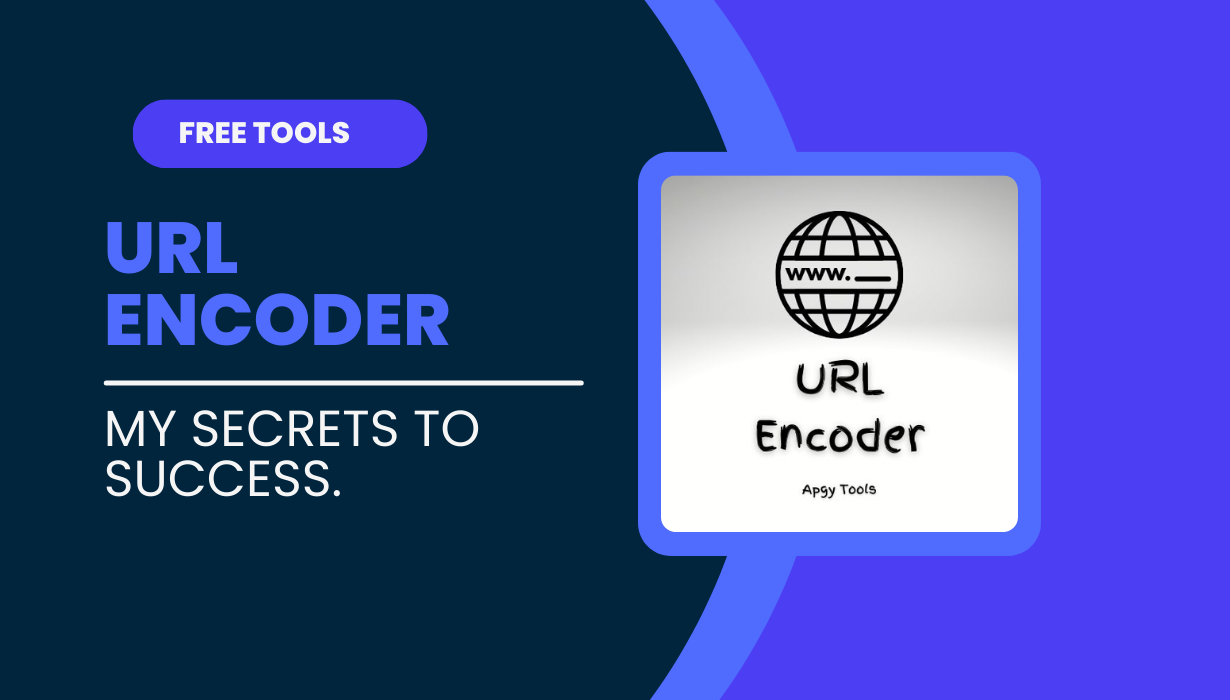
02
URL Encoder – Safely Encode URLs & Special Characters Online
Use our free URL Encoder tool to safely encode spaces, symbols, and special characters in URLs. Prevent broken links and ensure smooth data transfer
Introduction: Ever Seen a Messy Link?
Have you ever copied a link from Google or YouTube and noticed strange characters like %20, %3A, or %2F? At first, it looks like some alien language, but in reality, it’s just URL Encoding at work.
These weird codes aren’t mistakes — they’re the internet’s way of making sure links can travel safely across the web without breaking. This is where a URL Encoder tool comes in handy.
What is URL Encoding?
URL Encoding is the process of converting special characters in a web address into a safe format that browsers can understand.
For example:
- A space ( ) becomes %20
- A colon (:) becomes %3A
- A forward slash (/) stays as / but some systems may encode it as %2F
So, if you have:
👉 https://example.com/my profile
After encoding, it becomes:
👉 https://example.com/my%20profile
This ensures that links don’t break and always open properly.
Why Do We Need URL Encoding?
- Browser Compatibility – Not all characters are allowed in URLs (like spaces, quotes, or symbols).
- Data Safety – Encoding prevents errors when passing data in query strings.
- Search Engines – Encoded URLs are easier for crawlers to index correctly.
- Security – Encoding prevents malicious characters from being misinterpreted.
In short: No encoding = broken or unsafe links.
How Does a URL Encoder Work?
A URL Encoder tool takes any text or string you provide and converts unsafe characters into percent-encoded format.
For example:
- Input: name=John Doe&city=Navi Mumbai
- Encoded: name=John%20Doe&city=Navi%20Mumbai
This encoding follows RFC 3986 standards, which define how characters should be handled in URLs.
Common Characters in URL Encoding
CharacterEncoded ValueSpace | %20
: | %3A
/ | %2F
? | %3F
& | %26
= | %3D
@ | %40
# | %23
Real-Life Examples of URL Encoding
- Search Queries
When you Google “best AI tools”, the space gets encoded:
👉 https://www.google.com/search?q=best%20AI%20tools - Special Characters in Parameters
If your password or token has @ or #, they need encoding to be sent correctly. - APIs and Web Development
Developers often encode JSON strings or data before sending them in API requests.
URL Encoder vs URL Decoder
Many people confuse these two, so let’s clear it up:
- URL Encoder – Converts unsafe characters into encoded form.
- URL Decoder – Converts encoded values (%20) back into normal text (space).
You need encoding when sending data → You need decoding when reading data.
Best Free URL Encoder Tools (2025)
1. LooksMaxAIQ URL Encoder
- Simple, fast, and browser-based.
- Encode any text or query instantly.
2. FreeFormatter.com
- Supports both encoding and decoding.
3. URL Encode/Decode by CyberChef
- Great for developers and security researchers.
4. RapidTables Encoder
- Easy for beginners, supports instant copy-paste.
Pros & Cons of URL Encoder
ProsConsPrevents broken links | Beginners may find %20 confusing
Ensures safe data transfer | Too much encoding can make URLs unreadable
Required in APIs & SEO | Manual encoding is time-consuming
Universal standard | Some systems interpret differently
People Also Ask (PAA)
❓ Why do URLs need encoding?
Because URLs can only use specific characters. Encoding makes sure all data fits within web-safe rules.
❓ What is %20 in a URL?
It represents a space character in encoded format.
❓ Can I manually encode a URL?
Yes, but it’s easier and safer to use a URL Encoder tool.
❓ Is URL encoding the same as encryption?
No. Encoding is for formatting; encryption is for security.
FAQs
1. Is URL Encoding mandatory?
Yes, if your URL contains spaces or special characters.
2. What happens if I don’t encode my URL?
The link may break, or the browser may misinterpret the data.
3. Can URL encoding prevent hacking?
It reduces risks like injection attacks, but it’s not a substitute for proper security.
4. Which characters don’t need encoding?
Alphanumeric characters (a-z, A-Z, 0-9) and a few safe symbols like -, _, .
5. Do search engines prefer encoded URLs?
Yes, because they are standardized and easier to crawl.
Conclusion
URL Encoding might look boring at first glance, but it’s actually the unsung hero of the internet. Without it, we’d constantly run into broken links, misdirected queries, and endless browser errors.
Whether you’re a developer, SEO specialist, or just someone sharing links, a URL Encoder tool ensures your links work smoothly every single time.
So next time you see %20 in a link, don’t panic — it just means the web is working behind the scenes to make your life easier.
Contact
Missing something?
Feel free to request missing tools or give some feedback using our contact form.
Contact Us